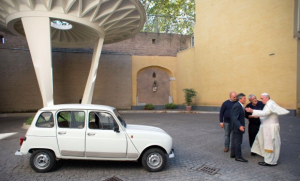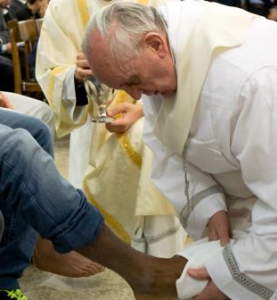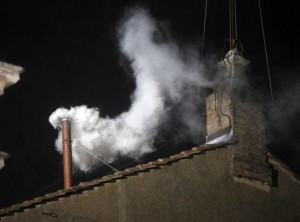Pope Francis today issued his first written document, the Evangelii Gaudium and in it he takes on an issue of concern in many parts of the world, the growing gap between rich and poor. “How can it be”, he writes, “that it is not a news item when an elderly homeless person dies of exposure, but it is news when the stock market loses 2 points?” The Pope’s “apostolic exhortation” is in large part a stinging rebuke of unbridled capitalism, juxtaposing the real lives of the poor with the focus on ever increasing wealth. Pope Francis practices what he preaches, living in a modest guest house rather than in the ornate Apostolic Palace and riding around Rome in a used Ford Focus. Last month he suspended a German bishop who had spent lavishly on remodeling and decorating his residence.
This week-end the Swiss voted on one of their many national voter referendums, this one stipulating that CEO’s could not earn more than 12 times the pay of their lowest-paid employee. The measure did not pass, but that it even came up for a vote in a country that values highly the entrepreneurial spirit and celebrates its rich multinational firms is an indication of how wide-spread the concern over the increasing gulf between rich and poor is in many European countries. In fact the Swiss passed a referendum in March that already placed restrictions on CEO pay.
Meanwhile, in the U.S., as the NY Times pointed out in an article this week-end, the mere mention of “redistribution” is political poison. The article points out that a leading candidate to chair the White House Council of Economic Advisers, Rebecca Blank, had her name withdrawn when it was learned that 10 years earlier she had not only used the word in print but had dared to assert, “A commitment to economic justice necessarily implies a commitment to the redistribution of economic resources, so that the poor and the dispossessed are more fully included in the economic system”. A statement in harmony with Pope Francis’s epistle and one that Christians would seem obligated to support, but seemingly so out of step with American popular opinion that not even a Democratic White House could embrace it.


